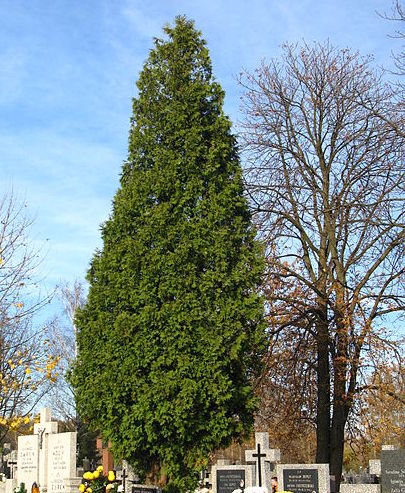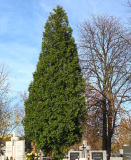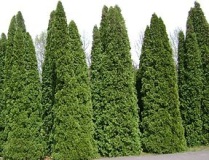- Home
- >
- Hedging Seeds A-Z by Latin Name
- >
- Northern White Cedar (thuja occidentalis)
Northern White Cedar (thuja occidentalis)
SKU:
£1.10
1.1
17
£1.10 - £17.00
Unavailable
per item
Seed Prices
0.5 gram (approx 220 seeds) £1.10
1 gram (approx 440 seeds) £1.45
2 grams(approx 880 seeds) £2.20
5 grams (approx 2200 seeds) £3.10
10 grams (approx 4400 seeds) £4.40
25 grams (approx 11000 seeds) £9.50
50 grams (approx 22000 seeds) £17.00
Use the drop down button below to select the seed quantity
Germination, Sowing and After Care Information for
Northern White Cedar (thuja occidentalis)
Northern White Cedar seeds are relatively easy to germinate and grow. The dormancy within the seed is short and easily broken. This is achieved by a short period of cold stratification in the fridge.
First soaking the seeds in water for 24 hours.
Fully drain away all of the water and place the seeds in a zip-lock freezer bag. Place the seeds in the fridge at around 4 Celsius, it is important that during this period that the seeds do not dry out or are waterlogged otherwise the pre-treatment will be ineffective.
After around 8 weeks under these conditions the seeds are ready to be sown. It is possible for seed to begin germination at these low temperatures before the end of the pre-treatment period. If this happens you can sow the seed immediately.
In general, the seeds will fail to germinate unless treated in this way, simply sowing untreated seeds in compost at room temperature will not break down the dormancy and germination will be disappointing.
Fill your chosen container with a good quality general potting compost. Suitable containers could be plant pots, seed trays or plug trays or even improvised containers with drainage holes. Firm the compost gently and sow the seeds on the surface. If you are sowing in plug trays, sow 2 or 3 seeds per cell.
Cover the seeds with a couple of millimeters of vermiculite or failing that a fine layer of sieved compost. Follow with a gentle watering and keep them at room temperature.
Germination will begin a few weeks from sowing. The seedlings are reasonably robust and trouble free and usually grow to a height of between 3 and 6 cm in the first growing season depending on the sowing date and cultural techniques.
Densely sown seedlings of this species are especially at risk from fungal diseases such as “damping off” which can cause rapid loss of many seedlings. Effects of this disease can be limited by sowing at low density and watering only as required and try to maintain a dry surface on the compost. Chemical fungicides can also be sprayed as protection.
Developing seedlings should be fine in full sun, keep them well watered and free of competing weeds. Growth will accelerate in the second and subsequent years and the developing young trees should be re-potted as necessary preferably during the dormant season. After perhaps 3 years they are ready to be planted in their permanent position





